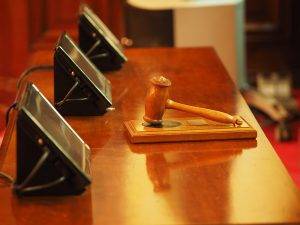Page Contents
There are no fiduciary duties for a successor trustee of California trusts to perform until the creator of the trust cannot perform their duties.
When a living trust gets created, the creator of the trust manages and controls the trust.

When the creators of a California trust die, the trust becomes irrevocable. The trust cannot be changed without permission from the beneficiaries or the probate court. Probate code 15404 provides for the modification of irrevocable trusts.
If the creator of the revocable trust can no longer manage the affairs of the trust, then the successor trustee steps in. This could happen when:
- The creator of the trust document dies
- If the person becomes incapacitated and unable to manage the duties and responsibilities.
The successor takes on trustee responsibilities upon death or incapacity.
Successor Trustee Fiduciary Duties
What happens when the creator of a Trust dies?
The successor trustee’s duties are to administer the trust.
Fiduciary responsibilities executing the trust include:
- Inventory the trust property
- Establish the value of the trust’s assets
- File income tax returns
- Manage to file the estate tax return
- Prepare the trust’s final account
- Make distributions to beneficiaries of the trust according to the terms of the trust document
A successor trustee continues to manage the trust if the trust does not end when the creator dies. A trustee’s duty continues according to the terms of the trust.
What happens if the creator of a Trust becomes incapacitated?
The successor trustee’s duties are to manage the trust and manage the care of the person, including health care.
These duties may require a consultation with an attorney, third-party advisors, or a trust company to get help with investments and understanding the duties and responsibilities outlined in the trust agreement.
A successor trustee need not have a business law degree or be a CPA.
It only makes sense to appoint a responsible person who is dependable and attentive to the responsibilities and duties.
Qualifications of a Successor Trustee
If I were a family member, attorney, or judge, the range of skills or abilities I feel would be mandatory for anyone acting in a fiduciary capacity are:
 Organizational Skills: The ability to maintain detailed records and file management.
Organizational Skills: The ability to maintain detailed records and file management.- Communication Skills: The ability to read, write and orally communicate at many levels and ensure they understand communication.
- Computer/Technical Skills: Ability to use computers, devices, various software programs, calendaring, follow-up, and security.
- Accounting & Finance Skills: A grasp of general accounting and bookkeeping principles. Able to balance a bank account. Be fiscally responsible and have good money management.
- Resourcefulness: The ability to mitigate risks, understand contract language, negotiation skills, conflict resolution, perform due diligence, keep confidentiality, impartiality, fairness, and discernment.
- Character Traits: Honesty, trustworthy, responsible, and accountable.
When we are the successor of a Trust and we do not understand our fiduciary duties or our responsibilities, then we need the expertise of a trust attorney to guide us.
If the role is more than we can handle, and we do not have the skills necessary to do the job expected then it is prudent to allow someone qualified for the role to step in.
What happens if the Successor Trustee Breaches Fiduciary Duties?

An honest mistake can cause breaches of trust and breach of fiduciary responsibilities.
- A successor acts on behalf of someone else. A trustee must perform the duties outlined in the trust.
- Duties of loyalty are expected and trustees are accountable to the beneficiaries of the trust.
- Trustees hold a duty of loyalty to administer the trust in the interest of the beneficiaries of the trust.
- When fiduciary duties get breached a successor may be held personally liable.
If a trust beneficiary believes the trustee has breached their duties a consultation with an attorney is in order.
Personal liability for breaching fiduciary duties and responsibilities get determined by the court.
It is up to the court to decide if the trustee did not exercise reasonable care and if it will hold them personally liable.
The Cost of Free Advice
When we become a successor of a Trust, and we know we do not have the ability to do the job, they expect us to get someone else to act even if that someone else is a licensed California Fiduciary.
I’ve encountered people that say they do not have the money to hire an attorney. They know they don’t know what to do. They know their job extends beyond their ability.
Absent personal funds or trust resources to pay for a consultation with an attorney they seek free advice.
- People resort to friends and neighbors for help.
- Their friends and neighbors are now giving legal advice and offering their Pro Bono help.
- When the advice is bad advice and followed, we may find we’ve stepped on a landmine.
- The landmine could be that we breach our duty by failing to exercise prudence and exercise reasonable care.
- Ignorance is not a defense.
When we are acting on behalf of someone else and we do not know what we are doing, then we should not be acting on the ill-gotten advice of friends, family, or neighbors. Doing so is failing to exercise reasonable care.
What we think we may save by not hiring a professional may end up costing us far more than what we believe we are saving by getting free advice.
